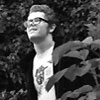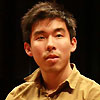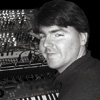David Sadler

David Sadler has been composing on and off for over half a century. He gained a BMus (Hons) at Birmingham University in 1964 and in 2014, fifty years on, is studying for an MMus in Composition at the University of Canterbury. His focus has tended to be choral music, especially the challenge of setting medieval carol texts in a manner that keeps faith with the essential simplicity of the genre yet achieves a freshness in the musical language.
A busy career as a musician involved him in teaching, conducting, and occasionally in the role of orchestral keyboard player on celesta and piano. He also specialized as a rehearsal pianist for large choirs, not only playing for some well-known, international names - Kurt Masur for one - but also, over the long timespan, he covered repertoire from Monteverdi's Vespers of 1610, through to the intricate textures of Tippett's The Mask of Time (1984) and Messiaen's La Transfiguration de Jesus Christ (1965-69) for which there was only a full orchestral score, not a vocal/piano short score. Not surprising, then, that composition had to take a back seat.
In the 1990s, however, a new work Out of your sleep was performed in Symphony Hall Birmingham, followed by another performance in the annual Advent Carol Service at St. John's College, Cambridge, where it received a broadcast by the BBC.
If choral music has continued (several more carols, plus Images of Faith, to texts by a Christchurch writer Lynley Young have emerged) instrumental music has burgeoned in 2014 with the MMus studies. In addition to the violin and piano Dances for a Pope there is Shaken Earth (piano quartet), Below the surface (string quartet), this fair luminous mist (large orchestra). Almost completed is an intentionally witty, three-movement work for brass quintet called Down the Hatch, with the immoderate drinking of previous generations as its subject, hence movements titled Six o'clock swill, Woozy Sunday lunchtime, and One for the road. On a much more serious note, he has very recently also composed I wonder would it be thus, a short chamber work for flute/piccolo, trumpet, violin, piano and baritone voice, setting 1915 words, written at Gallipoli during the campaign, by an Australian who survived the carnage.
(Updated October 2014)









